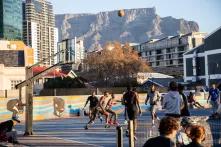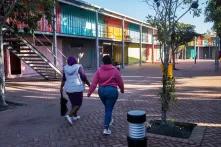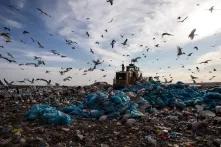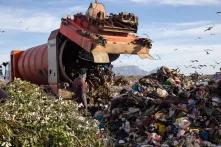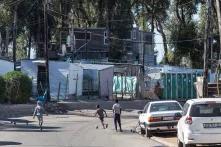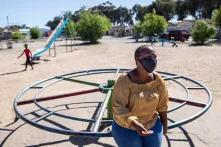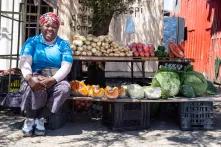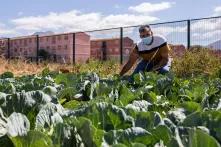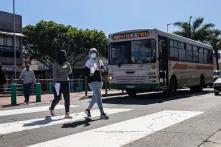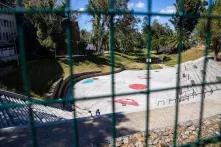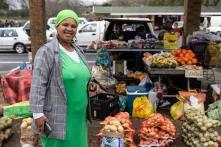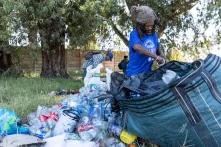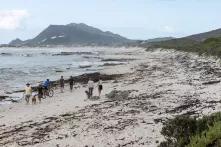A series of reflections on urban public spaces with support from the Heinrich Böll Foundation
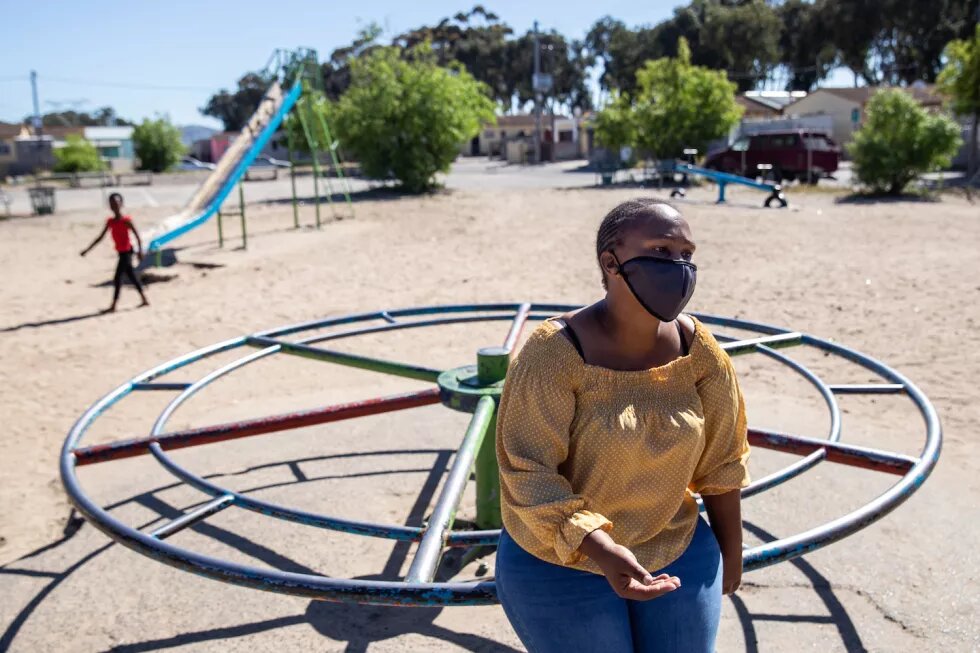
The COVID-19 pandemic has deeply affected the lives and livelihoods of those living in Cape Town, as with many other cities in the world, and further exposed the deep inequalities while raising the question of how public space can be better used to serve the city’s residents.
Building on the ‘Cape Town stories’ series, which told stories about people’s experience of public space during Covid in Cape Town, EDP Programme Lead Marcela Guerrero Casas explores how public spaces can be designed and managed in a way that embraces diverse voices and engages communities as partners.
The series, published in the Daily Maverick starting in July 2021, reflects on the various ecosystems in which public space exists and showcases examples where public and private actors are collaborating to respond to urban challenges. These include safety, waste, mobility, food, climate change and mental health.
This series was funded by the Heinrich Böll Foundation with a view to sharing best practices across African cities and accompanied with photographs by Ashraf Hendricks.
Building safe public spaces – a privately public affair
Lack of safety is a big challenge in Cape Town and its severity varies dramatically depending on where people live. There is therefore no one-size-fits-all approach when thinking about what makes public spacessafe. However, there are principles that can be applied across the board. This story reflects on two private entities in Cape Town, the Philippi Village and the V&A Waterfront which are examples of what safe spaces can look like and provide lessons that could be applied to public spaces across the city. Read the story here.
Waste management: A very public private affair
Landfills are seldom what comes to mind when thinking of public space, but they are one of the best mirrors of how we relate to the public realm. This story reflects on our relationship with waste in the urban environment at a personal and societal level given the impact that it has on the environment, the economy, wellbeing and more. The story invites the reader to reimagine landfills as a public space and how we can think about waste more generally. Read the story here.
Finding common ground to tackle climate and mental health
The link between climate change and mental health is gaining prominence. Given the high level of vulnerability of many of South African communities to climate change, this issue is both important and urgent. The story reflects on tools that can be adapted from other parts of the world to the unique history and lived experiences of people in South Africa. The story makes a case for public space to be a tool to support wellbeing in the face of climate change and for collective social healing. Read the story here.
Food — a shaping force for public spaces
Food helps to shape public space and vice versa. However, in its current form, food production and consumption occur in a haphazard way in South Africa, giving preference to large commercial interests and contradicting government policies around nutrition. The enormous wealth of knowledge among local actors in the food system, particularly in the informal sector is often disregarded. This story reflects on the opportunities for making cross-sector relationships more productive and amplifying policy objectives to increase access to nutritious, affordable food for all. Read the story here.
People enjoy car-free spaces, so why don’t we have more of them?
Cape Town is part of theC40 cities network, a global alliance of mayors and cities taking an ambitious approach to climate action, with one of its objectives being to create Zero Emission Areas (ZEAs). Yet the implementation of such a model will be very different from initiatives in European capitals. This story reflects on the existing plans for the Bellville Central Business District in Cape Town, showcasing what a ZEA looks like in the South African context. Read the story here.
How Vaxi Taxi is repurposing public spaces to bridge the vaccination gap
There is a widespread perception that people do not want to get vaccinated against Covid-19. While true in certain communities, in many historically underserved areas of the Western Cape, the challenge is access to vaccines. The VaxiTaxi campaign run by the Western Cape government’s Emergency Medical Services (EMS) aims to bridge this gap by using public space to vaccinate people in partnership with local community kitchens. This story reflects on the powerful impact such collaborations can have, through the example of a vaccination session in an informal settlement in Gugulethu. Read the storyhere.
Sustainable mobility in Stellenbosch: A key to economic well being
Stellenbosch exhibits many contrasts, and one is most evident on its streets: mobility. Despite its picturesque, walkable small streets, the town seems stuck in a permanent traffic jam. This article reflects on three reasons why ambitious plans have not come to fruition despite the fertile ground for experimentation: namely, the discrepancy between policy and planning, the long time-frames required for meaningful change and the need to bring all stakeholders on board to make an economic case for better mobility. Read the story here.
Creating new spaces and new ‘publics’ in towns
Public art is a powerful medium for healing, particularly in towns where visible marks of trauma and a history of violence remain. This is well recognised in policy, and in South Africa festivals are a popular way of championing arts and culture. After two years of Covid-19 restrictions, cultural events are starting up again, with the Klein Karoo National Arts Festival one of the first to return. This article centres on the journey of a group of young people who took part in an oral history project and found a way to connect to their home town Oudtshoorn and create a new narrative for themselves. Read the storyhere.
Public markets can be the pulse and saviours of SA’s small towns
Markets bring people together, generate economic opportunities, and provide essential goods. Grabouw, an agricultural hub for apples and pears in the Western Cape illustrates the potential of better public spaces in enhancing existing markets, and the need to incorporate lessons from successful private markets. These include providing basic infrastructure, creating a sense of ownership and building new partnerships. Read more here
Kogelberg reserve shows how protecting our biospheres is a sound investment
The false dichotomy between supporting conservation efforts and sustaining livelihoods has long since been dispelled. However, striking the balance in the context of high unemployment, the post-pandemic economic decline and climate change is challenging. The Overberg Municipality’s Kogelberg reserve is a great case study of how we can protect our natural assets, for the sake of the planet’s survival, while supporting the well-being and economic recovery of communities. Read more here
Economic recovery starts on our streets – a story about waste
Waste is one of the most challenging urban crises. The Western Cape has led a number of waste reduction initiatives, from introducing a ban on organic waste to landfill to integrating waste reclaimers into its formal waste management systems. Efforts by the Drakenstein Municipality show how waste reclaimers could help to make the process of waste management more visible, educate people, and help mend the social fabric torn apart by apartheid. Read more here
------------
Article original published on wcedp.co.za.
